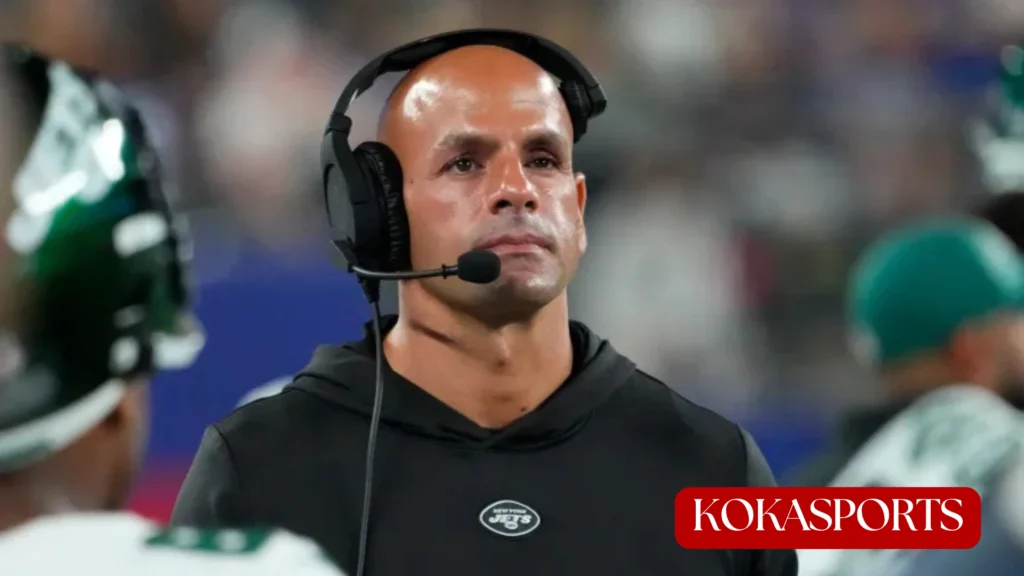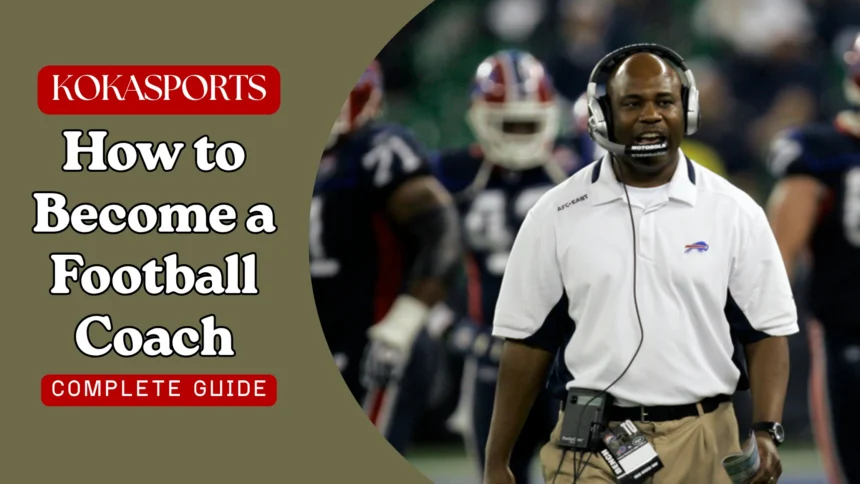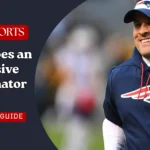Becoming a coach in the world of football is an exciting and fulfilling journey that combines passion for the sport with the opportunity to shape young lives. Whether you dream of coaching a youth team or leading a high school program, understanding the proper pathway to this rewarding career is essential. This comprehensive guide will walk you through everything you need to know about how to become a football coach, from obtaining the necessary credentials to gaining practical experience on the field.
The Football Coaching Landscape
Coaching football requires more than just knowledge of the game. Modern coaches must complete various requirements that ensure they can better serve their athletes while maintaining health and safety standards. The National Federation of State High School Associations and organizations like USA Football have established clear guidelines to help aspiring coaches navigate their journey. These organizations work in partnership with local communities to ensure that coaches must meet specific standards before leading a team.
The level of coaching you pursue will determine your specific requirements. Youth coaches often start with basic youth coach certification, while those aiming for school football positions typically need more advanced qualifications. Regardless of your target age group, the priority is always player safety and development. Today’s competitive coaching environment demands that coaches stay current with the latest technique and strategy developments while following proper regulation guidelines.
Read More: How Long Is Each Quarter in Football? Ultimate Guide to Football Game Length and Timing
Essential Certifications and Educational Requirements

The foundation of becoming a coach starts with obtaining proper certification. USA Football coach certification is widely recognized and serves as an excellent starting point for new coaches. This certification pathway typically includes multiple module components that cover everything from basic game principle concepts to advanced tactical instruction.
Key Certification Programs
USA Football offers several certification options that aspiring coaches should consider:
- Youth Coach Certification: This entry-level certificate program covers fundamental coaching principles
- Advanced coaching courses for experienced administrator roles
- Specialized coursework focusing on specific positions like offensive line coaching
- First aid and CPR training requirements
The NFHS National Coaching Credentials program is another essential qualification recognized by the Federation of State High School Associations across the country. This comprehensive program helps coaches must meet state-specific requirements. Many states now require high school coaches to complete this credential before they can lead a team.
To register for these programs, you’ll need to visit the respective organization’s website and submit your application along with any required documentation. The registration process is straightforward, but applicant should allow several weeks for processing. Most programs require coaches to certify their completion through an assessment that tests their knowledge of the material covered.
Educational Background Considerations
While not always mandatory, having an education background helps significantly. Many coaches hold degrees in physical education, kinesiology, or related fields. This formal education provides deeper understanding of athlete development and training principle that enhance your coaching effectiveness. However, don’t let lack of a specific degree discourage you—many successful coaches come from diverse educational backgrounds and gain knowledge through dedicated self-study and practical experience.
Step-by-Step Process: How to Become a Football Coach

Step 1: Build Your Knowledge Foundation
Start by studying the football development model, which provides an overview of how players progress through different stages. Understanding these principle concepts is crucial before you apply for any coaching position. Read books written by successful coaches, watch instructional videos, and study game film to understand various strategy approaches.
The coach’s responsibility extends beyond X’s and O’s. You need to understand age-appropriate training methods, communication technique, and how to create effective practice plans that develop skills while keeping session activities engaging and safer for participants.
Step 2: Complete Required Certifications
Once you have basic knowledge, it’s time to certify yourself through official programs. The USA Football coaching course is an excellent starting point. This course covers:
- Football’s rules and regulations
- Age-appropriate coaching methods
- Player safety and concussion awareness
- Proper tackle technique instruction
- Creating effective practices and games plans
You must complete these certification programs to be eligible for most coaching positions. The course material is designed to be accessible, so even those new to coaching can succeed. Many programs offer online modules that you can complete at your own pace, making it convenient to fit the coursework around your schedule.
Don’t forget the first aid and CPR requirements—these are typically mandatory for all coaches. Organizations need assurance that their coaches can respond appropriately in emergency situations. The first aid training you receive will prove invaluable throughout the season as you manage minor injuries and health concerns.
Step 3: Gain Practical Experience
Coaching experience is invaluable and often required before landing a paid position. Here are effective ways to gain experience:
| Experience Type | Time Commitment | Benefits |
|---|---|---|
| Volunteer Assistant Coach | 10-15 hours/week | Learn from experienced coaches, build network |
| Youth League Coach | Season-based | Develop leadership skills, direct coaching experience |
| Camp Instructor | Summer weeks | Work with diverse age groups, intensive experience |
| Junior Varsity Assistant | School year | Experience school environment, athletic program structure |
Volunteer opportunities are abundant in most communities. Local youth leagues are always looking for dedicated individuals willing to help. This volunteer work allows you to apply the principle concepts you’ve learned while developing your coaching style. Even one season of coaching a team at the youth level provides valuable insights that formal course work cannot fully replicate.
Step 4: Network and Build Relationships
Connecting with other coaches and athletic directors is crucial. Attend coaching clinics, join state coaching association groups, and participate in community sports events. These connections often lead to opportunities that aren’t publicly advertised. Many coaching position openings are filled through recommendations from other coaches who can vouch for your character and abilities.
State high school associations often host workshops and conferences where you can meet experienced coaches and learn from their coaching experience. These events also provide overview sessions on new regulation changes and innovative coaching methods that enhance your skills.
Step 5: Apply for Positions
When you’re ready to pursue formal positions, start researching opportunities that match your qualification level. Entry-level positions might include:
- Assistant coach at local youth programs
- Junior varsity assistant at a school
- Volunteer positions with established programs
- Camp administrator roles
Prepare a strong resume highlighting your certification, coaching experience, and any relevant education. Include specific examples of how you’ve helped player development and team success. When interviewing for a coaching position, be prepared to discuss your coaching philosophy, how you handle discipline, and your approach to player safety.
State-Specific Requirements
Each state has unique requirements for coaches working with school teams. Some states require background checks, while others mandate specific course completion or minimum coaching experience. Contact your state high school associations to understand local requirements. The administrator at your target school can also provide guidance on specific credential needs.
Many states now require an initiative where all coaches working with athletic programs must complete background screening and abuse prevention training. These regulation changes reflect the growing emphasis on creating safer environments for young athlete participants.
Specialized Areas and Advanced Credentials
As you progress in your coaching career, you might want to pursue specialized credential options. Advanced programs focus on specific aspects of coaching:
- Position-specific training (offensive line, defensive backs, etc.)
- Strength and conditioning certification
- Sports psychology and player motivation
- Advanced strategy and game planning
These additional qualifications help you stand out in the competitive job market and demonstrate your commitment to continuous improvement. The coach may choose to specialize in areas that match their strengths and interests, creating a unique value proposition for potential employers.
Practical Tips for Success

Here are essential tip points for aspiring coaches:
Tip #1: Stay Current – The game evolves constantly. Successful coaches register for continuing education opportunities and stay informed about rule changes and new teaching methods. Subscribe to coaching publications and regularly review updated material from USA Football and similar organizations.
Tip #2: Focus on Development Over Winning – Especially at youth levels, player development should be your priority. Teaching proper technique, fostering love for the game, and ensuring safety matters more than wins and losses. This principle-based approach builds stronger programs and develops better athlete over time.
Creating Your Coaching Career Pathway
The certification pathway you choose depends on your goals and current situation. If you’re currently coaching in an informal capacity, formalizing your status through proper certification should be your immediate focus. For those starting from scratch, begin with the youth coach certification program and build from there.
Your progression as a coach follows a natural path. Most successful coaches spend several years learning as assistant coaches before taking head coaching position roles. This practical experience under experienced mentors is irreplaceable. You’ll learn how to manage a football team, work with athletic administrators, organize session activities, and handle the countless details that make programs successful.
The journey to becoming a coach requires dedication, but the rewards are immeasurable. You’ll have the opportunity to impact young lives, teach valuable life lessons through sport, and be part of something larger than yourself. Every session you lead, every player you mentor, and every principle you instill contributes to your community’s football culture.
Conclusion
How to become a football coach is a question with many answers, but the core pathway remains consistent: obtain proper certification, gain experience, and commit to continuous learning. Whether pursuing USA Football coach certification or state-specific license requirements, the process is accessible to anyone with passion and dedication.
Remember that great coaches are built through experience. Your first certificate is just the beginning of a lifelong learning journey. Stay committed to your development, prioritize player safety, and never stop seeking ways to enhance your coaching abilities. The football community needs dedicated coaches who understand both the game and the responsibility that comes with shaping young athlete lives.
Start your journey today by researching available certification programs in your area, reaching out to local coaches for mentorship, and taking that first step toward a rewarding coaching career.
FAQs
How can I start coaching football?
Get a basic coaching certification, complete first aid/CPR training, and volunteer with a local youth team.
What is the salary of a football coach?
Youth coaches earn $0-$3,000 per season; high school coaches make $3,000-$10,000 annually; college/pro coaches earn $50,000 to millions.
How to get FA level 1?
Register on The FA website, complete the online intro course, attend the 3-day in-person Level 1 course, and pass the assessment.
What qualifications do you need to be a coach?
Basic coaching certification, first aid/CPR certification, background check, and state-required safety courses.




